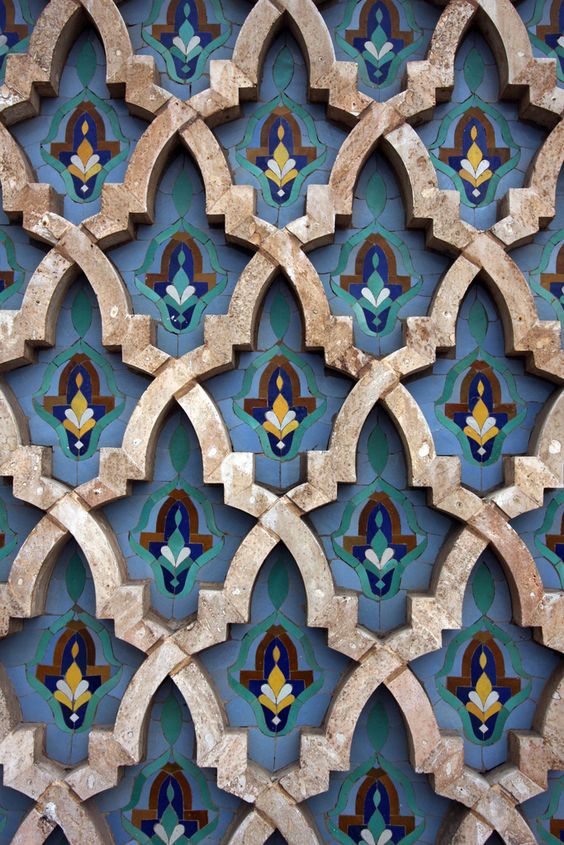Another Friday Post is here.
This time around I thought to share some interesting Arabic Superstitions which at times may connect with Islam, but at times they are considered to have more ancient roots.
Let me start with the fact that Islamic religion is strongly against all superstitions, but regardless of this, people remain superstitious as a remnant of the ancient times before religions. Also Jinns the ghosts or spirits who are associates of the Evil are present in Quran and they are being feared by many. This way, there are many practices used for driving these away as effectively as possible.
So, for this Friday 13th I thought to come up with some of the most interesting Arabic superstitions, which have so really merged with Islam that at this point they can also be considered Islamic superstitions. I hope you will enjoy my post.
What is a superstition?
A superstition is a belief that one event is either caused or that it can be prevented as a result of another action or with supernatural help in the form of a talisman/amulet. I really like learning about superstitions from all around the world and know where they originate from.

- Protection from the evil eye – The evil eye amulets
Contrary to their names, the amulet is not the evil eye. It symbolizes the evil eye and also represents a counterattack against it. Basically, it works as a mirror, to reflect bad will upon the one who wanted to impose it on another.

The Arabic and for that matter, the whole Islamic world deeply believes in the malevolent effects of the evil eye. This way, all things that are bad and which happen are often attributed to somebody getting the evil eye. What does this exactly mean? It’s basically like a curse one can get through looks. If somebody looks at you with a bad will, ill will, or with jealousy that’s what the concept of the evil eye entails. This superstition is a lot older than the Muslim religion. It in fact dates back to the ancient times of the Greek Empire where people first started to believe in the bad effects of any ill-will sent through looks. So if somebody suddenly falls ill, has his car scratches, and has multiple bad things happening to him or her at the same time, it’s easily attributed to getting the evil eye from somebody. This is why the amulets of evil eye and Khamsa ( also containing the evil eye) are always carried by everybody in all sorts of ways and forms.
This is also why a compliment in the Arab/Muslim world has to be immediately responded with a “mashallah” and if one looks a photo of somebody else’s relative or beloved one they need to say „Alhamdulillah or Astaghfirullah” immediately. Even, many parents dress their children down in shabby clothes to avoid them get the evil eye. The Qur’an compares fear of the evil eye to idolatry. According to the Qur’an (113:1,5): “Say, I seek refuge in the Lord of Daybreak…And from the evil of the envier when he envieth.”

- Walking under the ladder is considered good luck
While walking under the ladder is generally considered bad luck in Europe and America the same action is said to bring luck due to the triangular form the ladder takes which is said to bring luck dating back to ancient Egypt where the triangle was said to have the ability to bring one closer to the gods. This is why the form of the pyramids is triangular.
- don’t clip/trim your nails at night
This may sound weird, but this is said to be a very old tradition to which many old people still keep themselves in the Arab world. Do not trim your nails at night or you are bound to invite bad on your home.
- Don’t ever turn a shoe upside down or leave it in that state:
This is another interesting superstition that is alive to this day. It dates back to when people used to live in houses with dirt floors. If a shoe is turned upside down it easily invites dangerous species to hide inside such as venomous spiders and scorpions which would crawl into someone’s shoes. While dirt floors are much rarer than they used to be, this superstition is still alive to this day.
- Spilling coffee is considered good luck:

while we all don’t like to spill things, spilling coffee by accident is considered good luck in the Arab world, alongside the place to where the coffee spilled.
- Do not whistle at night or you invite the jinns:
whistling at night is not a good thing as it can invite ill-willed jinns which may follow you to your home and can cause disruption of all sorts. While Muslims do not believe in paranormal events, it’s haram, Jinns are also included in the Quran as dangerous spirits which may cause big harm. This is why lots of amulets, traditions intend to keep these badwilled spirits away.
- Beetle in your house is a sign of guests to arrive:

this is another interesting superstition. While other insects are not considered lucky beetle looking around in one’s home means the arrival of welcomed guests. Don’t drive them away and take care of not to kill them.
- Looking at your reflection in a broken mirror:
Don’t ever look in a broken mirror that distorts the face: the broken mirror is bad enough also according to European superstitions. The Arabic way just adds another dangerous action to it.
- Pinching the bride to invite good luck

This superstition is one that has turned into a tradition in many countries. Pinch the bride before the wedding to ward off the evil eye and to make marriage a successful, everlasting one with tons of good luck on the couple.
- Owl bringing bad luck
Especially if it hoots: we also do contribute bad luck to the owls especially if they are screech owls. According to many in the Arabic world seeing an own or especially hearing a hoot invites bad luck or misfortune in all sorts of ways. It’s said that the hoot of the owl is a sign of somebody passing away.
- Itchy palm left, right or both

If your right palm is itchy, it means that one can expect money in the near future. However, you shouldn’t scratch it or you will drive your good luck away. In case it’s your left hand’s palm that’s feeling itchy it means you are to lose money in some way or form. If you feel both your palms itchy, it also means good luck.
- Which foot to use for which action:
Enter home with the right foot first but when using the loo put your left foot first: while us in Europe also have our superstition concerning the use of first feet in the Arabic world this is connected with different actions such as waking up.
- Only use the right hand for eating:
People traditionally eat some meals using their hands in Arabic countries ( as well as in Indian and other African and Asian countries), using pita bread or other sorts of bread as a spoon. When you are invited to eat with hands, you must pay attention to use your right hand only. It is widely haram to use the left hand for eating as the left hand is the hand to be used only when going to the restroom /loo. Therefore, all people left-handed, be aware of this when visiting Arabic countries, and try to use your right hand for eating.
- The application of Khamsa to protect from the evil eye:

While Italians use the „devil horn” sign and we use the sign of the cross to ward off the evil, Arabs spread the right hand wide open in the face of those who are supposed to throw bad looks at them, to ward off their evil eye. Talismans of khamsa and evil eye also serve the same reason. Arabs often “bless” their new property by sacrificing an animal and printing the “khamsa” sign with their own bare bloody hands on their new possession.
- Application of henna for protection:

It’s a tradition that’s not only connected with somebody looking nicer. It has been also applied as a protective shield against evil spirits or jinns. This is why applying henna for women and children is still very common for special occasions as the celebration of childbirth, wedding, and other special occasions. Long ago if a baby boy died in infancy it was not uncommon for parents to name their next child Shahhat, or “beggar,” to keep the Evil eye and bad spirits away.
If you are interested please check out my connecting post about Islamic and Moroccan amulets.
I am soon to post my other posts ( one was supposed to be out by Eid but I got late) on Islamic inventions and mysticism in the Islamic countries. Please press like or comment if you would be happy to read about Islamic related posts.
Please post interesting superstitions from your country in the comments section!!!
Please check out scoopempire which gave me lots of info in this topic.
I will be glad if you contribute to my work. In case you cannot no worries please sacrifice a few seconds of your times on one ad on my page. That’s free and requires no effort. Thanks a bunch!

Please honor my work and blog with your contribution
In return I will be glad to dig deeper in any chosen connecting topic.
2.00 $
